|
|
|
|
|
|
|
|
| For almost as long as Kansas has existed, K-State Research and Extension has been here to help you and every other Kansan thrive.
In the middle of this current challenge, that mission remains unchanged. With offices in all 105 counties across Kansas, our promise has always been to provide relevant, science-based education and information to help you make decisions to maintain and improve your health, build and sustain businesses, grow your community, steward resources, feed the world, and raise the next generation of capable, responsible, thoughtful community leaders. While we remain steadfast in our commitment to that mission, we have had to adapt how we deliver to you during this time of public distancing. Kansas State University is on a limited-operation status. As of March 23, classes are being taught online, and most employees on campuses in Manhattan, Salina and Olathe have been working from home since well before Gov. Kelly’s statewide stay-at-home order. In accordance with guidance from the university and the State of Kansas, here’s how K-State Research and Extension is responding:
No matter where you live in Kansas, K-State Research and Extension is nearby – no matter the circumstances. We are a steady voice during trying times. Together, we can do this and will emerge stronger than ever. #inthistogether |
Carla Nemecek
Southwind Extension District
Director & Agent
[email protected]
620-365-2242
1 North Washington, Iola, KS 66749
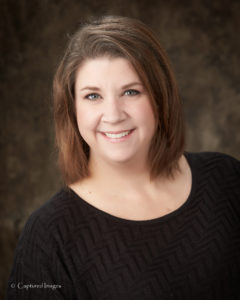
K-State Research and Extension Southwind District
Family Consumer Science News Column
Joy Miller
620-223-3720 or [email protected]
Release: March 27, 2020
Reading with children builds social, mental skills more rapidly
What we have discovered through COVID-19 situation, social distancing, stay at home spring break, and the announcement of schools closing is there are many learning opportunities and organizations like zoos are creating educational content.
Bradford Wiles, a K-State Research and Extension specialist in early childhood development, says children’s education happens right at home every time they read a book with their parents. “Reading with a child involves thoughtful and active listening to assess and assist the child’s knowledge,’ Wiles said.
Wiles has written a publication that outlines six ways in which parents can build their child’s cognitive and social-emotional skills while reading with them:
1) Ask questions in a mindful way that help you assess your child’s thinking, such as “Do you know what color that is?” or “Do you know what this is called?” Challenge your child to really think about what they are experiencing.
2) Provide explanation or instruction to build on what children already know. Sometimes children need just a single piece of information to fully understand something they were not previously aware of.
3) Model learning. When reading with a child, sound out words so that your children learn how to look at the print and determine how a word sounds. You can also mimic what you see – flap your arms to imitate how a bird flies.
4) Provide feedback. Comment on your child’s performance by saying “You did a good job. You used to struggle with that” or “That’s better than you did the last time.” Provide the “because” to explain why the child did well.
5) Help your child maintain focus. Young minds may wander quickly. When reading, offer choices such as a finishing a page before doing something else, stopping now, or skipping ahead to help your child stay engaged.
6) Structure the activity. Explain to your child that you are going to read and think about the story together. This helps the child develop a shared focus in the story.
For more information or tips check out Emergent Literacy: Helping Young Children’s Development Through Reading, available free online through the K-State Research and Extension bookstore. (https://bookstore.ksre.ksu.edu/pubs/MF3161.pdf)
K-State Research and Extension has compiled numerous publications and other information to help people take care of themselves and others during times of crisis. Visit the Southwind website (southwind.k-state.edu) for a list of resources with relevant information relating to COVID-19 and food safety. You can also follow us on Facebook @southwindextensiondistrict or Instagram Southwind_ext
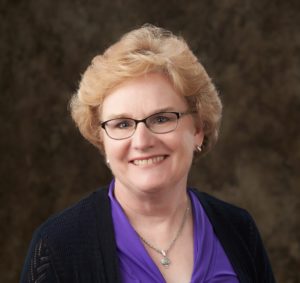
I seem to hit the fraud and scams topic fairly frequently. However, the landscape scammers work within is constantly changing, and scammers are crafty in learning new ways of reaching their targets. With the current climate created with COVID-19, more doors are cracking open for scammers to wiggle in and take advantage of unsuspecting victims. While we all need to be on guard, our older adults in our communities are still prime targets for scams.
Now that we are all spending more time in our home setting, the phones may be ringing more frequently. Along with the extra calls, we may be seeing more solicitations through email. The Federal Trade Commission (FTC) warns of these potential scams:
Undelivered products – Online sellers claim to have much needed products, such as cleaning, health, and medical supplies. These could include offers for vaccinations and home test kits. You can place an order, but then it is never delivered.
Most anyone can set up an online shop. Be sure to research the company name online before ordering with words such as “review,” “complaint,” or “scam.” If things check out, pay with a credit card and keep a copy of your transaction.
There currently are no vaccines or products to treat COVID-19. Neither are there any Food and Drug Administration (FDA)-authorized home test kits for the Coronavirus.
Fake charities – If you are looking for ways to help during this major health event, know that scammers use these same events to find ways to take advantage of good people’s generosity. Scammers will often set up charities that have similar names to those used by real charities. Do your homework and research before you donate. Again, if the proposed charity checks out, pay with a credit card. Never use a gift card or use a wire transfer.
Fake emails, texts and phishing – Scammers are very clever in getting their targets to share personal information, such as account numbers, Social Security numbers or passwords. Once they get a piece or two of personal information, they can steal your money or your identity.
Phishing emails lure targets to click on links within an email that can allow scammers to gain access to your computer. To make these phishing emails more realistic, they often use familiar company names and official logos from existing companies. Protect your computer by keeping your software up-to-date. This should include allowing automatic updates to your cell phone.
We have heard that as a part of the stimulus package being considered, that individual households may be receiving some future money direct from the government. While our pocketbooks could use an influx of cash right now, don’t respond to calls, texts, or emails relating to checks from the government.
Know that the government will not ask you to pay anything up front to get this money if it truly comes about. The government will not ask for your Social Security number, bank accounts or other personal information. Anyone who does ask for this kind of information or tells you they can get the money to you now is a scammer.
Robocalls – Scammers are using illegal robocalls to promote scams on various Coronavirus treatments and work-at-home schemes. Hang up on robocalls. Don’t press any numbers. Pressing a number will likely lead to more robocalls.
There are still a lot of unanswered questions relating to the Coronavirus. As we move forward into this uncharted territory, stay on your toes and question anything that may sound a little shady – especially those unsolicited requests involving money. Your money is yours, and you should be the one that decides how it is spent.
The FTC asks that if you come across any scams or suspicious claims, report them to the FTC by going to ftc.gov/complaint. The FTC wants to stop scammers as much as we as individuals would like to see scammer activity cease.
Submitted by Carol Baldwin, Ph.D.
Agriculture, Natural Resources, and Community Vitality
Umberger 103, 1612 Claflin Road, Kansas State University,Manhattan, KS 66506
|
|
|
|
|
|
Kansas officials to provide information to small businesses via First Friday online session April 3
Heads of agencies will take part in K-State monthly program in light of COVID-19
MANHATTAN, Kan. – Officials of two lead Kansas agencies responding to the COVID-19 outbreak will provide information for small businesses online Friday, April 3 at 9:30 am, as part of K-State Research and Extension’s First Friday monthly webinar series. The call will be recorded and archived.
The session, to be conducted via Zoom, is free and open to anyone interested in resources available to the public, particularly small businesses and employees in Kansas affected by the global pandemic.
Speakers include:
“Kansas has responded quickly to the concerns of small businesses and employees who have lost their livelihoods because of COVID-19,” said Nancy Knopp Daniels, community vitality specialist with K-State Research and Extension. “This call occurs every month in support of small business, but this month we have a special edition to highlight these response programs.”
She noted that a record 3.3 million Americans filed unemployment claims in the past week, which eclipsed the old record of 695,000 new claims in 1982.
To participate, go to https://ksu.zoom.us/j/2636377104; or One-Tap Mobile, + 13462487799,,2636377104#.
More information about First Friday e-Calls is available online or by contacting Daniels at 785-410-6352 or [email protected].
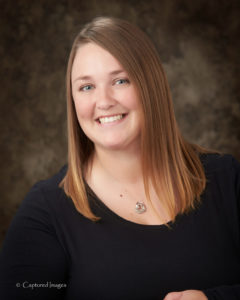
In this time of pandemic, many families are trying to find something to do as a family or specifically for their children. I would like to encourage your family to consider being a part of Southwind and Kansas 4-H.
4-H is a great organization to pair with homeschooling and the social distancing we are being asked to do. There are so many great things you may do as a family in 4-H and over 35 projects the family can learn more about together. One of those projects is Environmental Sciences.
This project provides opportunities for youth to engage in learning about environmental science through hands-on, experiential learning experiences in the natural sciences and technology. There’s No New Water! is a water conservation and water quality curriculum grounded in the concept that water is a finite natural resource whose quantity and quality must be responsibly preserved, protected, used and reused.
There is 4-H Curriculum that can be purchased for anyone interested in the Environmental Sciences project. Here is a breakdown of what youth can learn at different levels:
Earth’s Capacity (Ages 11-13)
Ecosystem Services (ages 11-13)
There’s No New Water (ages 14-18)
In addition to the curriculum, youth are also encouraged to utilize the Environmental Protection Agency of the United States website at epa.gov/students to find materials for all ages. Each year, youth are able to demonstrate their hard work locally at the county fair in the Miscellaneous Division.
The Environmental Sciences project is a great opportunity for youth to learn important life skills. For more information about this project, contact Jennifer K. Terrell, 4-H Youth Development for K-State Research and Extension – Southwind District at [email protected] or 620-244-3826.
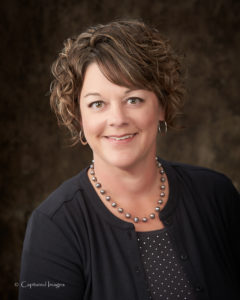
Just like many of you, I’m having difficulty wrapping my mind around how quickly our lives have changed in a very short period of time. Seeing the panic and chaos that’s happening around us can be concerning. Now more than ever, it might be the time for folks to think about becoming more self-sufficient and grow some of their own food.
I have been in contact with a couple of our local suppliers and have seen social media posts that they are stocked with garden seed and supplies. Like many other local retailers, I know they are willing to work with you if you do not feel comfortable going inside the business. Just give them a call and arrange for outside pick-up.
If you are reading this and thinking to yourself that you have never grown anything in your life and just don’t think it’s possible, let me assure you that it is possible. Even for the most novice! You might be thinking that you don’t have space for a garden, or maybe you don’t have a tiller or other equipment. Don’t let that stop you because almost all vegetables can be grown in containers.
The containers don’t have to be anything fancy. Literally, anything that can hold soil and have drain holes drilled in the bottom can be used. Containers that are 16 to 24 inches in diameter work well. Containers less that 12 inches are probably too small – except for lettuces. The most important component of growing vegetables in a container is getting the right potting media. Potting mixes are ideal (instead of soil from your yard). The components are lightweight and hold water and oxygen much better. Make certain that you don’t forget to drill some drainage holes into the bottom of the container.
Fertilizer should be added at planting time and mixed into the soil. If you want to go the organic route, mix blood meal or bone meal into the soil before planting. If you use a synthetic fertilizer, add a slow-release type when preparing the container.
Another benefit to growing vegetables in containers – you don’t have to fight the weather quite as much. Right now, traditional garden soils are way too wet to even think about planting. But with the container system, you can keep them dry inside a garage until you are ready to plant.
Early spring is the ideal time to plant cool season vegetables such as lettuce, spinach, radish, onions, carrots and potatoes. All can be easily grown in containers, even potatoes!
Gardening is a great stress reliever. It also allows for good social distancing. If you have kids at home, gardening is the perfect activity to get them outside to enjoy some fresh air and sunshine, all while learning at the same time!
Here’s where I come in. I have lots of resource material to help you. In addition, I’m always available by phone, e-mail or social media to answer your questions. Don’t be afraid to ask! In Extension, we say there are no “dumb” questions! I am here to help you in any way that I can. The Extension mission continues. We are committed to being innovative to connect you with research-based resources and education. We appreciate your patience as we all navigate the challenges associated with this time.
Krista Harding is a K-State Research and Extension Agricultural agent assigned to Southwind District. She may be reached at [email protected] or 620-244-3826.
K-State Research and Extension is an equal opportunity provider and employer.

K-State Research and Extension Southwind District
Family Consumer Science News Column
Joy Miller
620-223-3720 or [email protected]
Census Day is April 1, 2020, the formal beginning of the 2020 U.S. Census. All Kansas households will receive an invitation with instructions by mail between March 12th-20th. Data collection continues through July 2020.
The U.S. government uses the population data to help determine how billions of dollars in federal funding flow into states, counties, and communities for ten years. Participation in the 2020 Census ensures your community is represented fairly and receives their share annually. This could mean more funding for your schools, roads and highways, public health, affordable housing programs, and so much more.
Who Should Respond to the Census? EVERYONE! Your participation is important, essential, major, meaningful. How do I respond to the census? The Census Bureau will offer the census form in four ways:
The Census Bureau will NOT call or email you.
What questions will be asked on the 2020 Census? The survey is ten questions and takes approximately 10 minutes to complete.
For more information and insights into the 2020 Census, visit census.gov. Follow us on Facebook (Southwind Extension) and join us Tuesday, March 31st for Facebook Live to learn more about the Census, how it is used, and the potential impact on your community.

Monarchs, Painted Ladies, Swallowtails and other beautiful butterflies call southeast Kansas home.
If you are interested in attracting these to your yard and incorporating a more naturalistic approach in your landscape, plan to attend the “Protecting the Pollinators” program on March 30th at 6:30 pm in the Round Room at the Fort Scott Community College.
June Stipp, Extension Master Gardener, will provide information on planting butterfly nectar and host plants, as well as how to incorporate a water source and warming area into the landscape.
Krista Harding, District Extension Agent, will discuss the proper use of insecticides.
This program is co-sponsored by the Bourbon County Garden Club and the Southwind Extension District.
It is free and open to the public. Please RSVP to the Southwind Extension District – Fort Scott office by calling 620-223-3720.
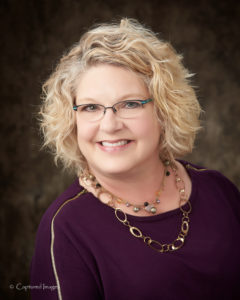
Submitted by Kathy S. McEwan
Family and Consumer Sciences Agent
Foods & Nutrition, SNAP-Ed Coordinator
Southwind Extension District – Iola Office
P.O. Box 845, Iola KS 66749
620-365-2242
Use common sense to protect from coronavirus
K-State experts say washing hands frequently is among the best defense
As Americans brace for the impact of the new coronavirus in the United States, a pair of Kansas State University specialists say the best defense against the emerging threat may be one of the most simple.
“If you’re feeling panicked about the coronavirus – or not – go wash your hands,” said Erin Yelland, a K-State Research and Extension specialist in adult development and aging. “That is truly one of the best preventative actions we can take.”
In fact, the U.S. Centers for Disease Control, the country’s leading medical authority on emerging health threats, lists hand-washing at the top of a short list of preventative steps Americans can take toward COVID-19, which is the particular strain of coronavirus now in the news.
The CDC’s recommendations include:
In addition, experts are encouraging Americans to avoid close contact with people who are sick and to disinfect surfaces and objects that are touched frequently. Those who feel sick should stay home or seek medical care immediately.
“Preventing sickness from this particular virus is like a lot of other respiratory viruses that circulate this time of year,” said Londa Nwadike, a food safety specialist whose academic background is in public health. “The same steps we have taken to prevent getting the flu are important for stopping this virus, as well.”
Nwadike said reports of coronavirus in the U.S. is not cause for panic, but should be taken seriously. She said that Americans should routinely read updates and information from the CDC, and in Kansas, from the Kansas Department of the Health and Environment.
“For a lot of things, it’s good to be prepared, whether it’s coronavirus or influenza or anything else,” Nwadike said. “Do things based on science, not just because everyone else is doing it.”
Yelland urged older adults to be especially attentive to taking care of themselves.
“Older adults are at heightened risk of complications from many illnesses – such as the flu, pneumonia, norovirus, and coronavirus – and need to take appropriate precautions,” she said. “Taking these precautions is something we should be doing every day, not just when there is a global issue. In such institutional settings as nursing homes, the precautions are very much the same: wash your hands, limit visitation from sick family members, and group people who are ill in the same area or wing.”
Yelland cited a recent report in the Journal of the American Medical Association that indicated the fatality rate of coronavirus in China was 1% to 2%. “However, the fatality rate is as high as 8% to15% among older adults in China,” she said.
“But higher fatality rates are not only limited to the coronavirus; 0.1% of the population that gets the flu in America will die from it, and 90% of those deaths are among adults 65 and older,” Yelland said. “Age is clearly a huge risk factor for complications, hospitalizations and death from many viruses and illnesses. As such, older adults must be diligent in their hand-washing, staying away from others who are sick, and staying up-to-date on all vaccinations, including their yearly flu shot.”
The CDC has published a fact sheet to answer additional questions about coronavirus. Persons with any doubts on whether they have been sickened by the coronavirus should seek medical assistance.
For additional information and links to publications about coronavirus, visit our website at: www.southwind.ksu.edu. “Like” Southwind Extension District on Facebook for the most current updates and information.
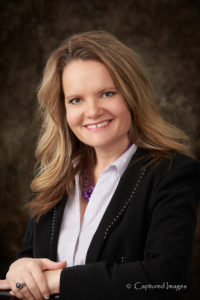
Submitted by: Carla Nemecek, Southwind Extension District, Director & Agent
K-State Research & Extension in the Southwind District is proud to present our 2020 Speakers Bureau as a service to the community. We offer presentations on a wide variety to topics and hope there is at least one that may suit your needs. Our speakers are District Extension Agents who have agreed to give presentations to elementary and secondary schools; civic and professional organizations; and community groups. We are confident that you will find the presentations insightful and entertaining.
The topics that are offered for 2020 are:
Check Your Credit will ask the question “When was the last time you checked your credit?” We ask the question because one in five people have an error on at least one of their credit reports according to a study conducted by the Federal Trade Commission. Learn more about this new program to establish yourself as financially capable.
Everything But the Moo will virtually illustrate many of the non-food items made from cattle. The program is based on the idea that Native American used every part of the buffalo and wasted nothing. Today, we still use nearly every part of the food animal. Examples of these products include leather, gelatin, china, cosmetics and fertilizers.
Herb Growing addresses the versatility of herbs for culinary or medicinal purposes. Are you interested in learning how to grown your own herbs? This presentation will cover herb care and maintenance, and how to incorporate herbs into the landscape, as well as tips for growing herbs in your kitchen.
Let’s Play Leadership in the Classroom offers various team building games encourages adults and students to work together and gain all important leadership skills. After all, what better way to learn about leadership than through play! This program can be adjusted for a specific leadership request as a program on demand.
The Opioid Crisis provides an introductory overview of the opioid crisis that is sweeping our nation at an alarming rate. Drug abuse, dependence, and overdose are issues that affect the lives of millions of Americans, and Kansas is not exempt. Two counties is the Southwind District have been identified as having a greater risk than the national average for this epidemic. Education is key to address the opioid crisis.
Alzheimer’s 101 or Gray for a Day explores the age-related sensory and functional challenges some adults might face with age. One in three seniors will experience some form of dementia, and the 101 session will covey the differences between age-related memory loss and dementia. To educate participants on age-related sensory and functional challenges, Gray for a Day explores hands-on activities that simulate changes aging adults might face.
Succession Planning will provide an opportunity to explore the step-by-step process where families can work together to develop a plan to incorporate the next owner and pass on knowledge and resources that will sustain a farming or business operation. The purpose is to spark conversations about planning for the future, and this program can be altered to suit the audience for business or farm succession.
These presentations are flexible with location and presentation time – from a short 30 minute engagement to a longer format if needed. All presentations are offered free and by appointment only. We will do our best to accommodate your request, and presentations will be scheduled based on the availability of the individual presenters.
If your group or organization has an interest in these programs, please contact the Southwind Extension District, 620-625-8645 (Yates Center); 620-365-2242 (Iola); 620-244-3826 (Erie); 620-223-3720 (Ft. Scott). Additional information about the Southwind Extension District can be found on our website, www.southwind.ksu.edu or on Facebook, Southwind Extension District.